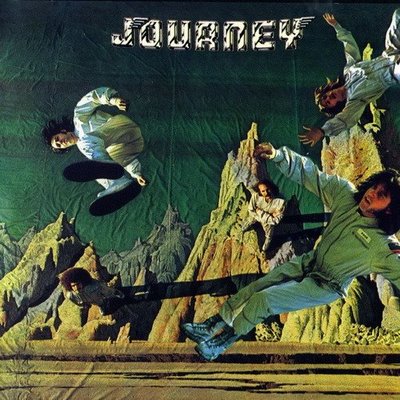
Journey (1975)

1. Of a Lifetime
2. In the Morning Day
3. Kohoutek
4. To Play Some Music
5. Topaz
6. In My Lonely Feeling/Conversations
7. Mystery Mountain
JJourney is one of those bands where, if all you know is the string of monster hits they unleashed in the 1980s, you're in for a pretty serious shock when you go back to their roots. Put it this way: they didn’t just evolve—they pulled a complete musical U-turn. And you’d be hard-pressed to find many other bands with such a drastic shift in sound that also managed to become wildly successful.
At the core from the beginning were guitarist Neal Schon and keyboardist Greg Rolie—both veterans of Santana, no less—so this wasn’t some garage band hoping to stumble into a hit. They knew what they were doing musically. Rounding out the early lineup were bassist Ross Valory, drummer Aynsley Dunbar, and rhythm guitarist George Tickner. From the jump, this group wasn’t aiming for radio-friendly hits; they were here to jam.
And jam they do. Journey is an album squarely planted in the jazz-fusion/prog-rock realm of the early-to-mid '70s. Think less “Don’t Stop Believin’,” and more “Let’s see how many bars we can squeeze into a single solo.” The vibe leans heavily on long instrumental stretches, complex time signatures, and a general sense that vocals are more of a formality than a focus. In fact, the two standout tracks here—Kohoutek and Topaz—are both instrumentals. It’s not hard to imagine the band would have been content to leave it that way.
Greg Rolie handles most of the vocals on the album, and while he gets the job done, it’s nothing to write home about. But honestly, that’s beside the point. This is a musicians' album—meant to be played, not sung. The arrangements are tight, the interplay between the instruments is sharp, and the passion for performance comes through loud and clear. Nearly half the tracks clock in at over six minutes, and you get the sense they probably doubled that length when played live.
The overall sound? Somewhere between early Santana and spacey Pink Floyd—especially on the leadoff track, Of a Lifetime, which might just be the best thing on the record. There's enough variety in the tones and tempos to keep things interesting throughout, even if the whole project feels more like a snapshot of its era than a timeless piece of work.
Out of the band's first three albums—the pre-Steve Perry years—this debut is easily the strongest. It never falls completely flat, and while the style would fall out of favor fairly quickly, there’s enough solid musicianship here to make it worth a listen. Just do yourself a favor and erase all memory of the band’s later commercial dominance before diving in. This is a very different Journey.
Go back to the main page
Go To Next Review